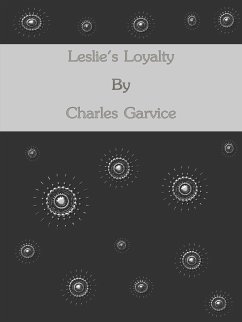Nobody ever goes to Portmaris; that is to say, nobody who is anybody. It lies—but no matter, ours shall not be the hand to ruin its simplicity by advertising its beauties and advantages, and directing the madding crowd to its sylvan retreat. At present the golden sands which line the bay are innocent of the negro troupe, the peripatetic conjurer, and the monster in human form who pesters you to purchase hideous objects manufactured from shells and cardboard.
Bitte wählen Sie Ihr Anliegen aus.
Rechnungen
Retourenschein anfordern
Bestellstatus
Storno









